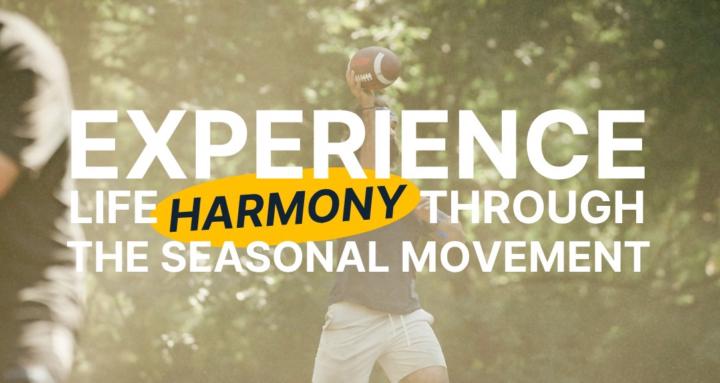Pinned
👋 New Here? Introduce Yourself
Welcome. We’re glad you’re here. This community exists for people who’ve realized something important:performance, energy, and focus aren’t about pushing harder — they’re about alignment. The seasons change.Light changes.Biology changes.And when our routines don’t adapt, friction shows up. This space is where we explore how to work with those changes instead of fighting them. 👉 To get started, introduce yourself below: - Your name - Where you’re joining from - What season you feel most out of sync with right now - One thing you’re hoping to understand, improve, or realign If you prefer video, feel free to post a short welcome video.If writing feels better, that’s perfect too. There’s no pressure to perform here — just awareness, honesty, and progress. Welcome to the Seasonal Movement. We’re building rhythm, not hustle.
0
0
Pinned
🤝 Accountability — Support Through the Season
This space exists to help you stay connected to your intentions as the season unfolds. Accountability here isn’t about pressure or perfection. I'ts about showing up consistently, adjusting when needed, and not doing it alone. Use this space to: - Share what you’re committing to this week or season - Check in on progress — even if it feels messy - Name resistance, friction, or loss of momentum - Recommit after a pause or setback How to use this space well: - Be honest, not performative - Focus on progress, not comparison - Ask for support when you need it Seasonal change requires patience and rhythm.Accountability helps you stay oriented while things shift.
0
0
Pinned
🏆 Wins — Progress Worth Noticing
This space exists for one reason: to recognize progress as it happens. Wins don’t have to be loud or dramatic here.They can be: - Showing up consistently during a hard season - Finishing something you’ve been postponing - Adjusting your routine instead of forcing it - Closing a chapter, not just opening a new one Of course, bigger milestones belong here too: - Completing a seasonal routine - Launching or selling something - Booking calls or clients - Experiencing more clarity, energy, or focus than before This is a place to mark momentum, especially when it’s quiet and easy to overlook. Share your wins — big or small — so we can: - Reinforce what’s working - Learn from each other - Encourage one another through the season Progress compounds when it’s acknowledged. Drop your win below 👇
0
0
📣 Broadcast — Important Updates
This space is reserved for official announcements and updates. Here you’ll find: - Program updates - Call schedules and reminders - New resources or releases - Important notices related to the community Posting in this space is limited so key information stays clear and easy to find.
0
0
💬 General Discussion — Open Conversation
This space is for open, thoughtful conversation related to the Seasonal Movement. Use this space to: - Share reflections or questions that don’t fit elsewhere - Explore ideas sparked by posts, calls, or personal observations - Start conversations around alignment, seasons, energy, and rhythm - Think out loud with the community If you’re not sure where something belongs, this is usually the right place.
0
0
1-29 of 29

skool.com/theseasonalmovement
Harness seasonal energy with scientifically backed seasonal routines to boost overall well-being throughout the year.
Powered by

